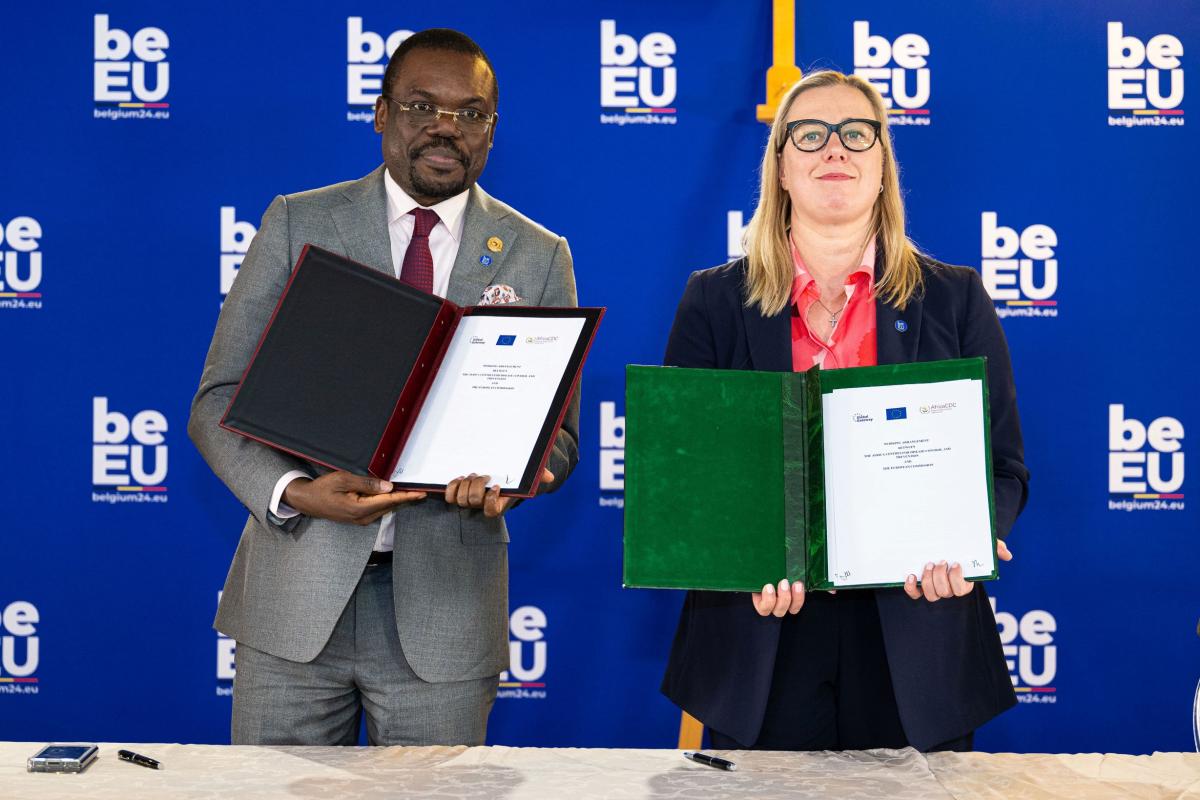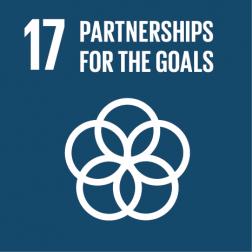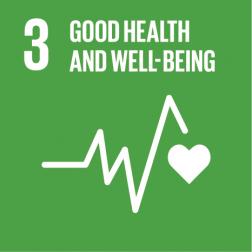Belgium's presidency of the Council of the European Union has resolutely chosen 'global health' as a priority for the domain of 'development cooperation'; after all, we are increasingly aware that we are not healthy until everyone is healthy.
The new EU global health strategy – completed under the Belgian presidency – sends the same message: 'Global health is no longer merely an issue of development assistance, but rather an area in the common interest of all countries'.
60% proprietary vaccines
Certainly in Africa, there is still much to do. Of the 2 billion people worldwide who lack access to essential medicines, diagnostics and vaccines, most live in sub-Saharan Africa. Some 52% of African citizens do not have access to healthcare. The African continent has to import 99% of its vaccines and over 90% of its medicines.
Accordingly, in its Agenda 2063 – a blueprint to transform Africa into a global powerhouse – the African Union (AU) has made health a key area of attention. The AU wants 60% of vaccines used in Africa to be made in Africa as well by 2040. In 2016, the Africa Centres for Disease Control and Prevention (Africa CDC), was established, which supports public health institutions in member states. Since then, Africa CDC has been given an expanded mandate to develop a new health policy ('New Public Health Order for Africa') for the continent.
Our awareness that we depend on others for our health grew especially during the coronavirus pandemic. Wealthy countries in particular appropriated the coronavirus vaccines while Africa had a much harder time obtaining them. Both Belgium and the EU realised the need to contribute to building quality health systems in Africa. The African continent needed to be much more self-sufficient in the production of necessary vaccines and medicines. 'No one is safe until everyone is safe', was the mantra during the pandemic.
mRNA vaccine hub
Belgium soon made that realisation very concrete: together with the World Health Organization (WHO), our country supported the development of an mRNA vaccine hub in South Africa, which was intended to eventually enable vaccine production in several African countries. EU support for vaccine production is also being provided in Senegal, particularly at the Institut Pasteur in Dakar.
These projects form part of a Team Europe initiative (TEI = a project of the EU and some EU Member States) called MAV+: Manufacturing and Access to Vaccines, medicines and health technologies in Africa. The TEI MAV+ was announced back in May 2021, still in the midst coronavirus pandemic.
.jpg)
African Medicines Agency
MAV+ uses a 360-degree approach that takes into account as many factors as possible: supply, demand and enabling environment. It also devotes attention to industrial development, the market, regulatory strengthening, technology transfer, access to finance and Research & Development, among other areas. So far, 1.3 billion euros have flowed into MAV+, coming from the European Commission, the European Investment Bank, Germany, France, Belgium and the Netherlands, among others.
The 'regulatory strengthening' component aims to ensure that health products made in Africa are of good quality. This is why Belgium is also supporting the creation of a counterpart to the European Medicines Agency (EMA), i.e. the African Medicines Agency (AMA). These are institutions that verify that the vaccines or drugs produced are of sufficient quality – and not dangerous – to be marketed. For example, EMA has approved vaccines against COVID-19.
Belgium is also involved in the MAV+ component concerning education. For example, we are supporting a Master's degree in biotechnology at the University of Kigali (Rwanda), and we hope to expand it in Senegal as well.

Belgian presidency and global health
The EU-AU summit (February 2022) also attached great importance to robust health systems, as well as to local production of and equitable access to vaccines and other medical products. It was then agreed to rigorously monitor the summit's decisions so that they would not remain empty promises.
Belgium has taken this closely to heart, and this is why the Belgian presidency of the Council of the EU has provided an ideal opportunity to put global health back at the centre of focus.
In February, a TEI mission, led by the Belgian Minister for Development Cooperation and European Commissioner for Health and Food Safety Stella Kyriakides, went to Addis Ababa where the AU has its headquarters. This was a first, incidentally: never before has a Member State organised such a trip as part of a presidency.
The mission was followed by a high-level conference on 20 March 2024, which was attended by senior representatives from the Belgian government, the European Commission, the AU and Africa CDC. Finally, on 23 April 2024, a technical event took place in Mechelen in which civil society representatives also participated.
Three new TEIs
Of course, these events have ensured that global health has remained high on the political agenda, but many concrete results also emerged. In addition to the already ongoing 'flagship initiative' MAV+ and the TEI SRHR (sexual and reproductive health and rights), three new Team Europe initiatives were announced, specifically with regard to:
- Digital health or digitisation at the service of healthcare.
- One Health or a holistic view that recognises the relationship between human health and the health of animals and of habitats or ecosystems.
- Work on high-performing public health institutions in AU member states that monitor public health and advocate training and research.
.jpg)
A partnership of equals
Cooperation between the AU and the EU on health is particularly constructive. Regular meetings are being held to discuss the state of cooperation around health, creating an open dialogue to make TEIs work as effectively as possible. For example, the African Medicines Agency (AMA) consults widely with the European agency EMA to share experiences and support AMA's startup where possible.
It also involves cooperation as a partnership of equals, one of the core issues of the EU-AU summit. The EU can also learn from the AU, including from its extensive experience with pandemics, as well as mobilising the population and engaging health actors in the community.
The partnership also responds to a specific request of the AU. Many donors, including China, are building a great deal of infrastructure such as hospitals while the EU is also focusing on knowledge and setting up cooperation networks. While this seems less tangible, it is nevertheless an equally necessary investment; it includes, for example, regulatory or statutory frameworks needed for (vaccine) production and investment in Research & Development of new products and services tailored to the people of African countries. All are indispensable for making Africa sovereign in the domain health.
The Belgian presidency is thus contributing to the realisation of accessible, affordable and quality healthcare in Africa. The topic of 'equitable access to health' will remain on the radar of Belgium and the EU in any case – even after the Belgian presidency ends at the end of June 2024. After all, as has been said repeatedly: we can only be healthy in Europe if Africa is too.



